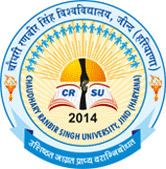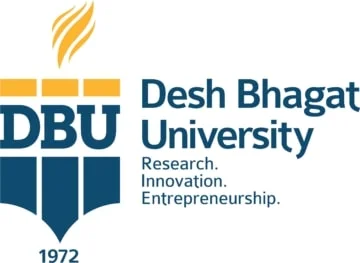
By
Primusvidya
Date
06/03/2024
How Does a Master's in Education Improve Teaching Quality?
In the dynamic and ever-evolving domain of education, the relentless pursuit of excellence is a perpetual endeavor.
Within this context, a Master's in Education (M.Ed) stands out as a pivotal milestone for educators who are dedicated to refining their teaching capabilities to new heights of proficiency. This distinguished advanced degree, especially when undertaken through online channels, presents a distinctive amalgamation of ease, adaptability, and comprehensive depth. It empowers educators to significantly augment their pedagogical skills, thereby profoundly influencing the educational trajectories of their students.
Opting for an online M.Ed program offers unparalleled flexibility, allowing teachers to integrate their studies seamlessly with their professional commitments. This mode of learning is not just about acquiring theoretical knowledge; it's an immersive experience that enables educators to apply newfound insights in real time, enhancing the immediacy and impact of their educational interventions. The depth of study in an M.Ed program covers a spectrum of pedagogical theories and practices, equipping educators with the tools to foster a more engaging, inclusive, and effective learning environment. As educators navigate through this advanced degree, they transform into more adept, reflective, and innovative practitioners, capable of leaving a lasting imprint on the educational journeys of their students.
What is a Master’s in Education?
A master's in education is a graduate-level degree program intended to give teachers additional education knowledge and proficiency. It opens doors to a wider range of professional prospects, allows educators to explore specialized areas within education, and improves their teaching abilities. A wide range of topics, including curriculum development, instructional design, educational psychology, assessment, and educational leadership, are covered in this degree program. It enables educators to customize their studies to their unique interests and professional aspirations by offering a variety of specializations, including elementary, secondary, and special education. Those who pursue a master's degree in education are more prepared to succeed in teaching, curriculum creation, educational administration, and other related fields.
Types of Master’s in Education Degrees
There are several master's in education (M.Ed )programs, each with a focus on a distinct set of learning objectives and professional routes. These degrees give teachers the specific information and abilities they need to succeed in their chosen industries. An outline of various popular master's in education degree programs is provided below:
- Master of Education: The Master of Education (M.Ed) is a multifaceted degree that provides an expansive insight into the realm of education, ideal for educators aiming to advance their teaching competencies, leadership qualities, and instructional design skills. Moreover, M.Ed programs typically offer opportunities for personalization, enabling you to tailor your studies to match your specific interests and professional goals. This degree equips educators with the tools to excel in various educational settings, fostering a deeper understanding and enhanced practice in their chosen area of focus.
- Master of Arts in Education (MAEd): The Master of Arts in Education (MAEd) degree centers on the theoretical and research dimensions of education, making it perfect for those keen on educational research, policy formulation, and curriculum creation. These programs offer an in-depth exploration of educational fundamentals and typically necessitate a thesis or research project, catering to individuals aspiring to contribute to educational theory, policy, and practice.
- Master of Science in Education (MSEd): The Master of Science in Education (MSEd) degree focuses on a scientific and evidence-based approach to teaching and learning. It is designed for educators who delve into subjects such as evaluation, data interpretation, and the integration of educational technology. This advanced degree is particularly beneficial for professionals engaged in educational research or policy evaluation, equipping them with the necessary skills to analyze and apply data-driven strategies in educational settings.
- Master of Arts in Teaching (MAT): Opt for the Master of Arts in Teaching (MAT) degree if you're aiming for your first teacher certification or transitioning from a different career into teaching. MAT programs emphasize teaching techniques, classroom management, and strategies tailored to specific subjects. These programs usually incorporate practical teaching experiences in classrooms, equipping students with the necessary skills to meet the challenges of the teaching profession effectively.
Benefits of Pursuing a Master’s in Education
- Enhanced Pedagogical Skills: Candidates who have enrolled in Master in Education courses gain advanced knowledge in teaching methodologies, learning theories, and educational psychology to enhance classroom effectiveness.
- Specialization: M.Ed lets candidates deepen their expertise in a specific subject area or educational focus, tailoring their skill set to their interests and career goals.
- Increased Employability: A master's degree in education (M.Ed) can make seekers or learners more competitive in the job market, opening doors to higher-level teaching positions and administrative roles.
- Higher Salary Potential: Several educational institutions or universities are offering higher salaries to teachers with a master's degree, reflecting their advanced level of education and expertise.
- Professional Development: Engage in continuous learning and professional growth, staying abreast of the latest educational research and best practices.
- Networking Opportunities: Connect with fellow educators, researchers, and professionals in the field, expanding your professional network and opportunities for collaboration.
- Leadership and Advancement: Prepare for leadership roles within educational settings, such as department head, curriculum coordinator, or school administrator.
- Research Opportunities: Participate in educational research, contributing to the field and exploring innovative teaching practices and strategies.
- Global Perspective: Gain insights into global educational trends and practices, enhancing your ability to teach in diverse and multicultural environments.
- Personal Fulfillment: Achieve a sense of personal accomplishment and confidence in your teaching capabilities, impacting your students' learning experiences positively.
Are MAT and M.Ed the Same?
While the Master of Arts in Teaching (MAT) and Master of Education (M.Ed) are both graduate-level degrees in the field of education, they are not the same and cater to different professional goals and interests. The MAT is primarily designed for those seeking to enter the teaching profession or current teachers looking to enhance their classroom skills and subject knowledge. It is intensely focused on the art and science of teaching, offering practical, classroom-oriented training and a direct path to teacher certification in many cases.
Conversely, the M.Ed is a broader degree that is often pursued by educators who are already in the profession and are looking to advance their careers into areas like administration, leadership, curriculum development, or educational policy. While it does cover teaching methodologies, the M.Ed program also delves deeply into the theoretical, administrative, and technological aspects of education, preparing individuals for a wider range of roles within the educational sector.
Career Opportunities in Master of Education (M.Ed)
- Educational Administrator: Take on leadership roles such as principal, vice principal, or district administrator, overseeing school operations and setting educational standards.
- Curriculum Developer: Design and revise curricula at school or district levels, ensuring educational content meets learning objectives and standards.
- Instructional Coordinator: Work on developing teaching materials, coordinating educational content, and implementing teaching standards and strategies.
- Higher Education Lecturer: Teach and mentor students at colleges and universities, and engage in research within your field of expertise.
- Special Education Teacher: Specializes in educating students with diverse learning needs, creating and implementing individualized education plans (IEPs).
- Educational Consultant: Advise educational institutions, organizations, or individuals on curriculum design, teaching strategies, and educational policy.
- Corporate Trainer: Develop and deliver training programs within businesses or organizations, focusing on professional development and skill enhancement.
- Education Policy Analyst: Analyze and develop educational policies, contributing to the shaping of the educational landscape at local, state, or national levels.
- School Counselor: Provide guidance and support to students, assisting with academic, career, and personal development.
- Educational Technology Specialist: Integrate technology into educational settings, developing and managing digital learning resources and environments.
Recent Blogs
A Diploma in Education (D.Ed) is a professional qualificatio...
The Online Master of Arts (Online MA) in Buddhist Studies is...
Work Integrated Learning Programs (WILP) are designed for wo...
In the dynamic and ever-evolving domain of education, the re...
Initializing a career in teaching within Uttar Pradesh requi...
Have a Query?
Fill out the form below & we will get back to you.

You might be looking for these universities
A1. A Master's in Education is an advanced degree that focuses on various aspects of education, including pedagogy, curriculum development, educational psychology, and leadership in educational settings.
A2. An M.Ed program enhances teaching quality by providing educators with deeper knowledge of educational theories, innovative teaching strategies, and effective classroom management techniques. It also offers practical experiences through internships or research projects.
A3. Yes, many M.Ed programs offer specializations in areas such as special education, educational technology, curriculum and instruction, and educational leadership, allowing educators to focus on their areas of interest.
A4. M.Ed programs often include coursework on integrating technology into the classroom, providing educators with the skills to use digital tools to enhance learning and engagement.
A5. Yes, research is a crucial aspect of M.Ed programs, equipping educators with the ability to critically analyze educational practices and contribute to the field's body of knowledge.























-min.webp)

-min.webp)




